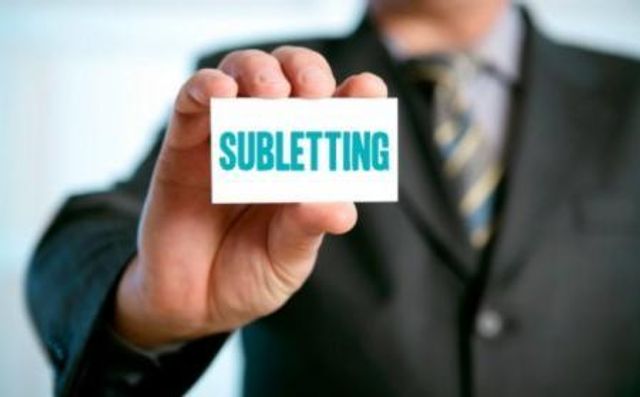What Tenants Need To Know About Subletting Their Rental Property
A tenant’s right to sublet
Under South African common law, a tenant has the right to sublet a property. Therefore unless the primary lease agreement provides otherwise, the tenant is entitled to sublet the property without the consent of the landlord.
It is worth noting though, that even if a clause preventing the tenant from subletting a property is included in the original lease agreement, this does not prevent the tenant from allowing another person to occupy the premises without payment. This view that allows use and enjoyment of a thing without payment in such situations was supported by the case of Estate Ishmail v Sayed, 1965.
The lease and sublease agreements
A sublease is a contract whereby the tenant rents out the property or part thereof to a third party. There are two lease agreements that exist if the tenant sublets the property; one between the landlord and the tenant and another between the tenant and the third-party lessee.
The primary lease agreement between the landlord and tenant will continue to be in place during the timeframe of the sublease and the tenant will retain all his obligations under the primary lease agreement. However, the validity of the sublease is dependent on the original lease and will terminate once the primary lease agreement comes to an end or is cancelled due to a breach of contract. As such, the third party will have to vacate the property on the termination of the primary lease.
There is also no contractual relationship between the primary landlord and the third party. The primary lease agreement may, however, stipulate certain requirements for the sub-lease (for example, the vetting of tenants).
When a tenant wants to sublet, he or she should consider whether this is allowed under the lease agreement or whether it is specifically prohibited. While a landlord cannot unreasonably withhold consent, a tenant may not sublet without this consent. Should a tenant proceed with a sublet without the necessary consent, he or she will be in breach of the primary lease agreement and the landlord may cancel this contract.
To resolve disputes that arise between landlords and tenants, the rental housing tribunal is accessible as an independent body to address and resolve these.
Subletting best practice
Should a tenant wish to sublet his or her property, it’s important to do so in line with best practice, including:
- Following local subletting laws (for example, one must consider the type of ownership in place since homeowners associations or rent controlled apartment buildings often do not allow subletting)
- Understanding the responsibility taken on as a lessee because subletting means a tenant will take on the responsibility of the lessor and will still be liable for costs to the landlord if something goes wrong
- Ensuring there is clarity in the original lease agreement in terms of the landlord’s policy on subletting
- Having a rental agent involved in the whole process
- Setting clear boundaries on the agreement between tenant and third-party lessee

